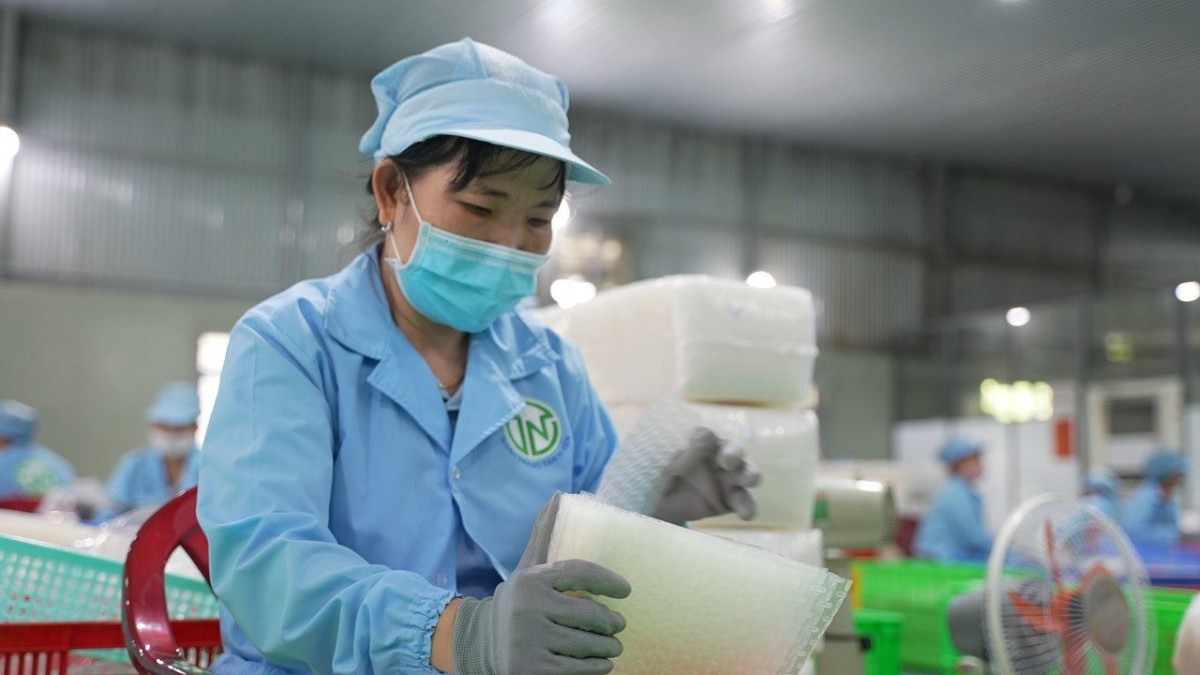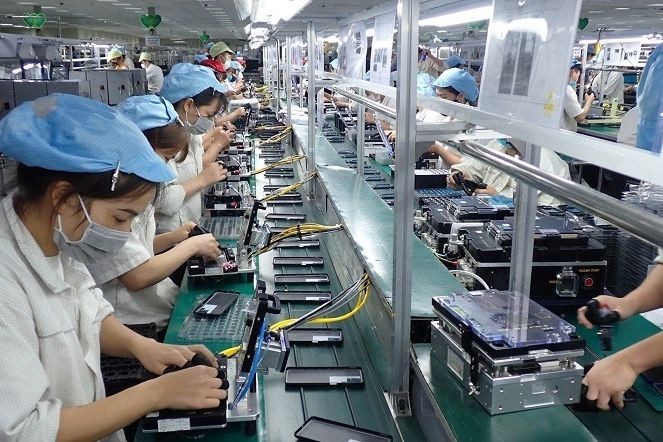
Key points in green transition
At a recent seminar themed “Green transition – Vital task for businesses” within the framework of the launching ceremony of a series of events under the theme “Green transition – Joining hands for a sustainable Vietnam,” Lai Van Manh, Head of the Economic, Natural Resources and Environment Department of the Ministry of Agriculture and Environment, emphasized the urgent role of businesses in shifting from brown to green production. According to Lai Van Manh, businesses are facing numerous strict standards and regulations related to sustainable development. For example, the European Union’s Carbon Border Adjustment Mechanism (CBAM) and the green classification system are becoming prerequisites for accessing preferential capital resources, particularly in the agricultural sector.
Also discussing the urgency of green transition, Dr. Tran Cong Thang, Director of the Institute for Agricultural and Environmental Policy Strategy under the Ministry of Agriculture and Environment, outlined three key points that businesses should consider.
First, businesses must clearly recognize the mandatory market requirements for green transition. Environmental and social criteria are becoming stricter, requiring businesses to comply with standards, including mandatory traceability requirements. When exporting to international markets, businesses will face inspections and evaluations from partners, creating direct competitive pressure.
Second, businesses must be proactive and forward-thinking in technological innovation. Market policies can change at any time, and without prior preparation, businesses will find themselves in a passive position. Investing in technology requires significant costs, but failing to transition early may result in losing competitive opportunities.
Third, corporate social responsibility and environmental protection must be top priorities for businesses. The misuse of chemicals and natural resources not only harms the environment, but also destroys businesses themselves. Additionally, businesses need to focus on training a workforce with new skills to meet the requirements of the green economy. The shift from a brown economy to a green one requires changes in both mindset and practices to utilize resources more efficiently and create sustainable value for future generations.

Businesses need support
Experts agree that green transition is not only a necessity for each business, but also a national imperative, including for Vietnam. It is also a key solution for Vietnam to achieve its commitment to net-zero emissions by 2050, as pledged by the Prime Minister at COP26.
However, for successful green transition, in addition to awareness and mindset shifts that must reach every business, worker, and citizen, significant investment is required in technology, machinery, and production processes. Without policy support or access to preferential financial resources, many small- and medium-sized enterprises (SMEs) will struggle to implement these changes.
To ensure that businesses are not “alone” in the green transition journey, Trinh Duc Kien, Deputy Director of Ke Go Co., Ltd., suggested the need for a clear, synchronized legal framework and substantial support mechanisms for businesses undertaking green transition. His proposal comes amid the significant financial pressure the transition places on businesses.
Echoing this view, Dr. Nguyen Quoc Viet, an economist from the University of Economics and Business (UEB), stated that green transition, environmental protection, and resource conservation, along with the adoption of a circular economy model, will enhance production capabilities, help businesses integrate more deeply into global value chains, and boost exports. Another major benefit for businesses is that certified green products and brands can overcome tariff barriers and gain a competitive advantage. Moreover, businesses that seize the opportunities presented by green transition can receive positive support from the Government, investors, and international financial sources.
“However, the key issue is that our institutional policies have yet to fully align with the capabilities and needs of the entire economy and businesses in green transition,” Dr. Nguyen Quoc Viet emphasized. He called for further research, discussion, and collaboration between businesses, policymakers, and researchers to open new opportunities, drive institutional reform, and develop appropriate policies that facilitate the transition from brown to green production. This would significantly contribute to Vietnam’s net-zero emissions goal by 2050.
For successful green transition, in addition to raising awareness, businesses must prioritize training a workforce with new skills to meet the requirements of the green economy.
Nguyen Hoa




